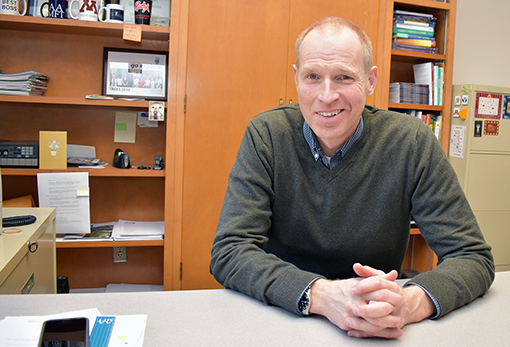
Steven Harris, professor and interim Couple & Family Therapy program director in the Department of Family Social Science, will lead workshops and deliver a keynote address to members of the Washington Association for Marriage and Family Therapy conference in September.
Harris, a licensed marriage and family therapist, professor and author, will lead a Discernment Counseling workshop, Friday, Sept. 27 that is designed to help practitioners work effectively with couples at a high risk for divorce but are uncertain whether to divorce or to try to rebuild their marriage.
In addition, Harris will share his insights in the keynote address, “Should I Stay or Should I Go? Ambiguity & Inclusivity in Couple Therapy,” and will lead a break out session on ethics in marriage and family therapy at the WAMFT conference Saturday.
Harris’ research agenda includes couples and intimacy, relational decision-making and prevention of unnecessary divorce. While on faculty at Texas Tech University, he co-authored a case study that analyzed the economic costs and policy implications associated with divorce. At the University of Minnesota, he has collaborated with Professor Bill Doherty on the Minnesota Couples on the Brink project that develops, disseminates, and evaluates best practices to help couples as well as enhances the capacity of therapists, lawyers, clergy, and other professionals to work effectively with them. Harris will also lead workshops on discernment counseling for the U.S. Navy and at the Indiana Association of Marriage and Family Therapist conference in early 2020.
In addition to his research, teaching and advising, Harris is also serving a four-year term as editor of the Journal of Marital and Family Therapy. Published by the American Association of Marriage and Family Therapy (AAMFT), the JMFT is dedicated to both reflect and foster the best scholarship in the MFT field that makes a difference, moves our field forward, crosses borders, is sensitive to diversity and social justice, and is relevant to both researchers and clinicians.



